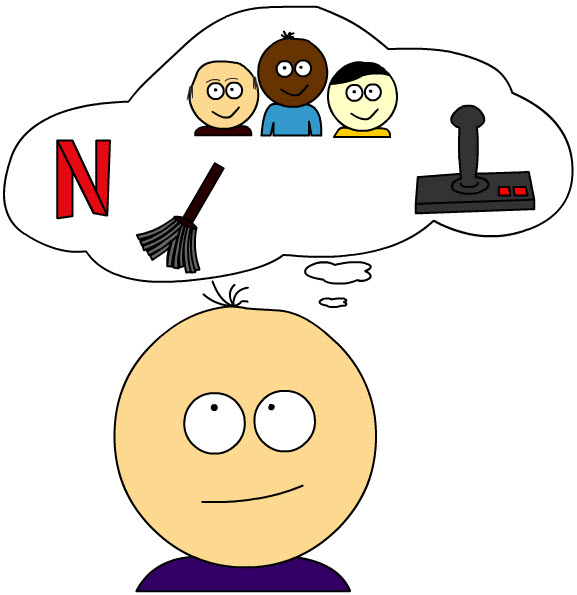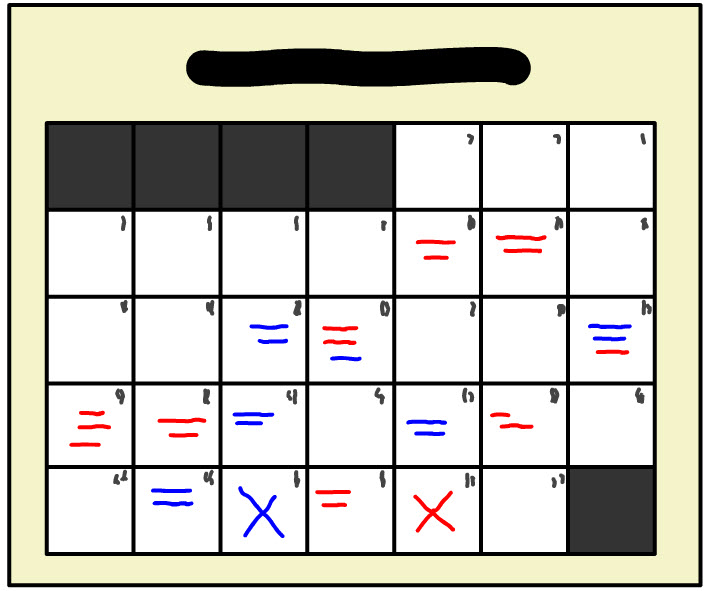Today is the day you’re going to finally start that assignment.
We’ve all been there. You set an aspiration to tackle some piece of university work, but never actually get around to it. Social media, Netflix, video games, going out, paid work, friendships, family, relationships, stresses and worries can all play their role in distracting you. Before you know it, you’ve lost focus and convinced yourself that the assignment can wait until tomorrow – or maybe next week. Read on for our advice on how to get on with stuff!

Look ahead and plan backwards
When deadlines are far off in the distance it can feel like you have all the time in the world to get things done. However, deadlines often stack up at certain times of year, and if you leave your work too late, you may find an impossible task ahead. The real trick is to plan backwards from all of your deadlines – including all the sub-tasks such as planning, reading, note making and writing. This helps you find out when you really need to start an assessment and makes it harder to put things off. You should also include other social and family commitments in your plans as these all impact the time you have available.
Planning backwards
- Make a list of all of the endpoints you have (this is usually a submission deadline or examination).
- For each of these endpoints, work out all of the sub-tasks required.
- For each sub-task, identify how much time you need to complete this.
- Grab your diary, electronic calendar or schedule and start to put all of these tasks into it. Try to make the tasks as specific as possible.
- Be mindful to arrange all of these activities around family commitments, work, hobbies, clubs and societies.

If you follow this process for each of your assignments and examinations, it will help you realize how long everything will take and when you need to start it. Knowing how much you have to fit in makes it much harder to put starting things off as you can see the consequences of doing so.
Prioritisation
Prioritisation is really important for getting stuff done. You may find yourself attracted to easier jobs to avoid tackling something difficult – for example, writing essays/reports to avoid your dissertation or independent project. This can be really dangerous as it can seem productive, but just getting on with things doesn’t help you focus on the most important tasks you need to complete. Prioritisation needs to be done at all levels – from deciding which sub-tasks to prioritise across a whole month or trimester in your backwards planning (above), to setting out what you intend to do each day or week.
To-do lists may be a great start in helping you to set out what you need to get done, but you must also set an order to your tasks. This helps to ensure the most important ones get done first – or you at least know which things must be done by the end of the day or week.
An approach to prioritisation:
- Identify what you need to do over the time period you are considering (i.e. the day or week).
- Order your whole list by how important it is.
- Rank each level of importance by urgency (in this, identify the things that are really urgent, such as pressing deadlines – these may not necessarily be the things that *feel* urgent).
- Establish how long you need for each task.
- Allocate each activity time in your diary or on your to-do list. You may need to re-prioritise or adjust timings if everything doesn’t fit.
Keeping on task
While planning and prioritisation can really help, it doesn’t get rid of the distractors set out in the introduction (i.e. Social media, Netflix, video games, going out, paid work, friendships, family, relationships, stresses and worries). To keep yourself on task, you need to address these in two ways:
- Be realistic in your planning. Include time for fun, family, friends and work around your studies and be strict in sticking to your plans.
- Use your prioritisation list to make tough decisions. Actively check your priority list before you agree to other activities. That way, if you have looming deadlines and you still have work to do, you can blame those priorities on why you have to turn down friends, family or Netflix.
Procrastination
Procrastination is one of the most damaging distractions that can stop you getting stuff done. We already have you covered on this one with our previous blog post: Should I be writing or revising right now? 5 common procrastination excuses and what you should do instead
